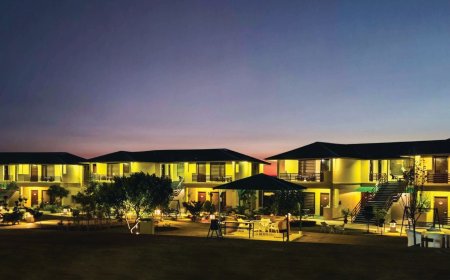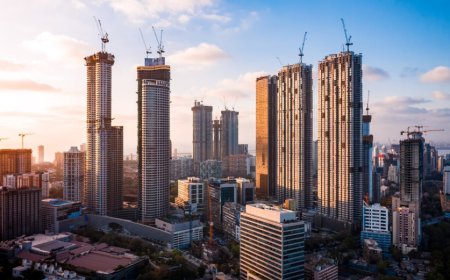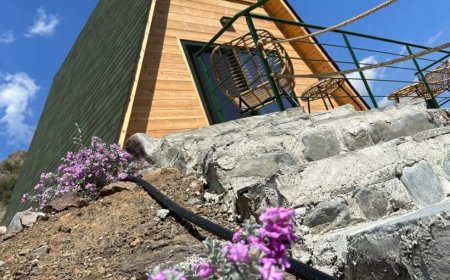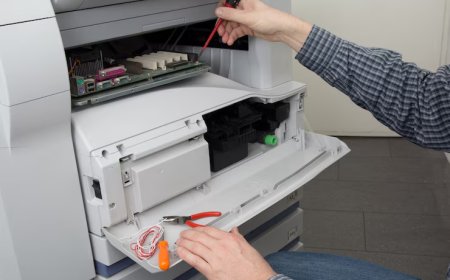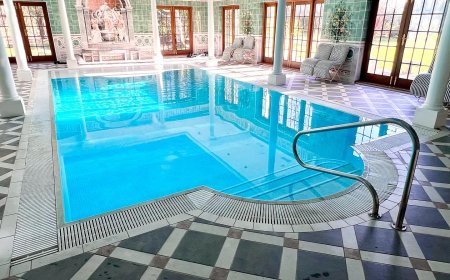Top 10 Washington Spots for Craft Workshops
Top 10 Washington Spots for Craft Workshops You Can Trust Washington State is a vibrant hub for handmade creativity, where artisans, designers, and hobbyists come together to learn, share, and grow through hands-on craft workshops. From the bustling streets of Seattle to the quiet studios of Bellingham and the scenic valleys of the Olympic Peninsula, the state offers an extraordinary range of work
Top 10 Washington Spots for Craft Workshops You Can Trust
Washington State is a vibrant hub for handmade creativity, where artisans, designers, and hobbyists come together to learn, share, and grow through hands-on craft workshops. From the bustling streets of Seattle to the quiet studios of Bellingham and the scenic valleys of the Olympic Peninsula, the state offers an extraordinary range of workshops designed to nurture skill, inspire innovation, and build community. But with so many options available, how do you know which ones are truly trustworthy?
Trust in a craft workshop isnt just about location or priceits about the quality of instruction, the integrity of the materials used, the safety of the environment, and the consistency of the experience. A trustworthy workshop doesnt just teach you how to make somethingit empowers you to create with confidence, understand the craft deeply, and continue your journey long after the class ends.
This guide highlights the top 10 craft workshops in Washington that have earned the trust of thousands of participants through proven excellence, transparent practices, and a genuine passion for teaching. Whether youre a beginner eager to try your hand at pottery or a seasoned maker looking to refine your woodcarving technique, these studios offer more than instructionthey offer community, credibility, and craftsmanship you can rely on.
Why Trust Matters
In the world of handmade crafts, trust is the foundation of every meaningful learning experience. Unlike mass-produced goods, handmade items carry the imprint of the makers time, skill, and intention. When you enroll in a workshop, youre not just paying for materials or a few hours of instructionyoure investing in guidance that will shape your creative abilities for years to come.
Trustworthy workshops prioritize safety above all else. This means properly maintained equipment, clear instructions for handling tools, and instructors who are trained in first aid and workshop protocols. It also means using ethically sourced, non-toxic, and sustainable materialssomething increasingly important to modern makers who value environmental responsibility.
Equally critical is the quality of instruction. A trustworthy instructor doesnt just demonstrate a techniquethey explain the why behind it. They offer personalized feedback, encourage experimentation, and create a space where questions are welcomed and mistakes are seen as part of the learning process. These workshops often have long-standing reputations, verified reviews from past participants, and transparent policies regarding cancellations, refunds, and class sizes.
Additionally, trust is built through consistency. A studio that has been operating for years with the same core team, maintains high standards across all class levels, and regularly updates its curriculum based on participant feedback is far more reliable than a pop-up class with no track record. Look for workshops that showcase student work, publish testimonials, and welcome visitors to observe a session before enrolling.
Finally, trust extends to community. The best craft workshops foster a sense of belonging. They host open studios, group exhibitions, and alumni events that keep learners connected long after the class ends. These are places where friendships form, collaborations begin, and creative identities are strengthenednot just skills.
In Washington, where creativity runs deep and the natural landscape inspires countless artistic expressions, choosing a trustworthy workshop means choosing a path that honors both your time and your passion. The following 10 studios have stood the test of time, received consistent praise from participants, and demonstrated an unwavering commitment to excellence. They are not just places to learnthey are places to belong.
Top 10 Washington Spots for Craft Workshops You Can Trust
1. The Clay Studio of Seattle Seattle, WA
Founded in 1982, The Clay Studio of Seattle is one of the oldest and most respected ceramic arts centers in the Pacific Northwest. With over 40 years of continuous operation, it has trained thousands of studentsfrom complete beginners to professional pottersin wheel-throwing, hand-building, glazing, and kiln firing.
What sets The Clay Studio apart is its commitment to small class sizes (no more than 8 students per instructor), access to professional-grade equipment, and a rotating roster of nationally recognized ceramic artists who lead specialized workshops. The studio maintains an open studio policy for members, allowing students to practice outside of class hours under supervision.
Materials are sourced from eco-conscious suppliers, and all glazes are lead-free and non-toxic. The studio also hosts monthly exhibitions of student work and offers a mentorship program for advanced learners. With consistent 5-star reviews on Google and Yelp, and a waiting list that often extends months ahead, The Clay Studio remains a gold standard for ceramic education in Washington.
2. North Sound Woodworks Bellingham, WA
Nestled in the heart of Bellingham, North Sound Woodworks is a haven for woodcraft enthusiasts seeking precision, safety, and deep technical knowledge. Led by master carpenter and educator Daniel Reeves, the studio offers courses in furniture making, joinery, carving, and turned wood objects.
Every class begins with a comprehensive safety briefing and includes personal protective equipment. Tools are meticulously maintained, and each student receives one-on-one coaching tailored to their skill level. The curriculum is structured to build foundational knowledge before advancing to complex projectsno shortcuts, no rushed outcomes.
North Sound Woodworks uses sustainably harvested local woods whenever possible and partners with regional forestry initiatives to offset material use. The studio also publishes detailed project guides online and offers a free alumni workshop once a quarter for past students to refine techniques and share ideas. Their workshop space is ADA-accessible and designed with natural lighting and ventilation to enhance comfort and focus.
3. The Fiber Loft Olympia, WA
The Fiber Loft is Washingtons premier destination for textile arts education. Specializing in weaving, knitting, embroidery, dyeing, and quilting, this studio has become a cultural anchor for fiber artists across the state. Classes are taught by practicing artists who exhibit their work in galleries from Portland to Vancouver.
What makes The Fiber Loft trustworthy is its transparency. All class descriptions include material lists, skill prerequisites, and expected outcomes. Students receive a printed workbook with each course, and instructors provide detailed written feedback on projects. The studio also maintains a public portfolio of student work on its website, updated quarterly.
Materials are ethically sourcedorganic cottons, undyed wool, and plant-based dyes are prioritized. The studio runs a yarn recycling program where students can donate unused fibers for reuse in beginner kits. Monthly Fiber Circles allow alumni to gather for critique and collaboration, fostering a lasting creative community.
4. Glass Alchemy Studio Tacoma, WA
At Glass Alchemy Studio, the art of glass fusing, slumping, and torch-working is taught with scientific rigor and artistic sensitivity. Established in 2005, the studio has become known for its meticulous safety standards and innovative curriculum that blends traditional techniques with contemporary design.
All instructors hold certifications in glass handling and studio safety from the Glass Art Society. Classes are capped at six students to ensure individual attention, and every participant is trained on kiln operation, proper ventilation, and heat-resistant tool use before beginning any project.
The studios signature Glass & Geometry workshop explores the intersection of mathematics and design in fused glass, attracting students from engineering and architecture backgrounds. Glass Alchemy also partners with local schools to offer discounted youth programs and provides scholarships for low-income participants. Their commitment to accessibility and excellence has earned them recognition from the Washington State Arts Commission.
5. Paper & Ink Workshop Spokane, WA
Specializing in hand papermaking, letterpress printing, and bookbinding, the Paper & Ink Workshop is a quiet gem in Spokanes vibrant arts scene. Founded by a team of former book conservators, the studio offers immersive courses in traditional and experimental paper arts.
Classes are small, intimate, and deeply educational. Students learn to make paper from cotton linters, hemp, and recycled textiles using handmade molds and deckles. In letterpress, they work with vintage metal and wood type, learning kerning, spacing, and ink mixing by hand.
Every workshop includes a tour of the studios archival collection of 19th-century printing presses and rare paper samples. The studio uses non-toxic inks, acid-free paper, and water-based sizing agents. All materials are reusable or compostable. Alumni often return to contribute to the studios annual limited-edition zine, which showcases student work alongside local poets and illustrators.
6. Metal & Fire Forge Bainbridge Island, WA
For those drawn to the raw power of metalworking, Metal & Fire Forge on Bainbridge Island offers a rare combination of industrial-grade training and artisanal care. This studio specializes in blacksmithing, metal sculpture, jewelry fabrication, and forge welding.
Instructors are certified journeyman smiths with decades of experience in both functional and sculptural metalwork. Each student is provided with personal safety gear, including heat-resistant gloves, face shields, and hearing protection. The forge room is equipped with industrial ventilation and fire suppression systems.
Classes are structured in progressive levels: Intro to Hammering, Intermediate Forging, and Advanced Surface Texturing. The studio also offers a 12-week apprenticeship track for serious students seeking to develop a professional portfolio. Metal & Fire Forge sources scrap steel from local shipyards and uses renewable biomass for fuel, aligning craftsmanship with sustainability.
7. The Botanical Dye Lab Port Townsend, WA
On the windswept shores of the Olympic Peninsula, The Botanical Dye Lab teaches the ancient art of natural dyeing using plants, roots, and minerals harvested from the Pacific Northwest. Classes cover indigo fermentation, mordanting, wool and silk dyeing, and eco-printing on fabric.
What makes this studio exceptional is its deep ecological ethos. All dyes are foraged sustainably under the guidance of local botanists, and students are taught how to identify and harvest plants without harming native ecosystems. The studio operates on a no waste modeldye vats are reused, plant matter is composted, and wastewater is filtered through a native plant bio-swale.
Each participant receives a curated dye kit with dried materials, a color wheel, and a journal to record results. The studio hosts seasonal dye excursions to nearby forests and wetlands, turning education into immersive exploration. Their workshops have been featured in Natural Dyeing Quarterly and Pacific Northwest Craft Magazine.
8. The Mosaic Atelier Walla Walla, WA
In the heart of wine country, The Mosaic Atelier brings the ancient art of tessellation to life with modern flair. Students learn to create intricate mosaics using glass, ceramic, stone, and recycled materials under the guidance of nationally exhibited mosaic artists.
Classes are structured around theme-based projects: nature-inspired panels, abstract compositions, and functional pieces like tabletops and mirrors. The studio emphasizes precision, color theory, and grouting techniques that ensure durability. All tools are sanitized between uses, and students are taught how to safely cut and handle glass with nippers and grozing pliers.
The Mosaic Atelier partners with local senior centers to offer free workshops for retirees, and donates completed pieces to public spaces across Walla Walla County. Their open house events allow the public to view works-in-progress and speak directly with artists. The studio also maintains a public Pinterest board showcasing student progress and technique tutorials.
9. Candle & Wax Studio Leavenworth, WA
Leavenworths Bavarian charm provides the perfect backdrop for The Candle & Wax Studio, where the art of candle making is elevated to a fine craft. This studio offers workshops in soy wax blends, beeswax sculpting, essential oil blending, and hand-poured container candles.
What distinguishes this studio is its focus on science and sensory experience. Students learn the chemistry of wax melting points, wick selection based on diameter, and how fragrance load affects burn quality. All oils are phthalate-free and sourced from organic farms. The studio tests every batch for clean burn and soot production.
Each participant leaves with a custom candle, a detailed recipe card, and access to a private online forum where they can troubleshoot issues, share designs, and request feedback. The studio also offers a Candle Makers Certification after completing three advanced workshops, granting access to wholesale materials and studio rental hours.
10. Stone & Earth Studio Mount Vernon, WA
At Stone & Earth Studio, the focus is on earth-based crafts: natural plastering, stone carving, clay sculpture, and eco-finishes for wood and stone surfaces. Founded by a team of architectural conservators and landscape artists, the studio teaches techniques rooted in vernacular traditions from around the world.
Workshops are held in a restored 1920s barn with hand-troweled lime plaster walls and natural lighting. Students learn to mix plaster from hydrated lime and sand, carve basalt and soapstone with hand tools, and apply natural sealants made from linseed oil and beeswax.
There are no synthetic materials used in any class. The studio sources stone from local quarries and clay from nearby riverbeds, teaching students how to identify and process raw materials responsibly. Each project is documented in a personal field journal, and students are encouraged to photograph their process and reflect on the cultural history of the techniques theyre learning.
Stone & Earth Studio also hosts seasonal Earth Gatheringsmulti-day retreats that combine craft, meditation, and storytelling under the open sky. These events have become a cornerstone of the studios community-building mission.
Comparison Table
| Studio Name | Location | Primary Craft | Class Size | Materials Sourcing | Safety Standards | Alumni Benefits |
|---|---|---|---|---|---|---|
| The Clay Studio of Seattle | Seattle | Ceramics | 8 students | Eco-conscious, lead-free glazes | Professional kiln safety training | Open studio access, mentorship program |
| North Sound Woodworks | Bellingham | Woodworking | 6 students | Sustainably harvested local wood | Full PPE, tool maintenance logs | Quarterly alumni workshops |
| The Fiber Loft | Olympia | Textiles | 10 students | Organic fibers, plant-based dyes | Non-toxic dye handling protocols | Fiber Circles, public portfolio |
| Glass Alchemy Studio | Tacoma | Glass Fusing | 6 students | Recycled glass, low-lead content | GAS-certified instructors, ventilation systems | Student exhibitions, scholarship program |
| Paper & Ink Workshop | Spokane | Bookbinding, Letterpress | 5 students | Recycled textiles, acid-free paper | Hand-tool safety training | Annual zine contributions |
| Metal & Fire Forge | Bainbridge Island | Blacksmithing | 5 students | Scrap steel, biomass fuel | Industrial ventilation, fire suppression | 12-week apprenticeship track |
| The Botanical Dye Lab | Port Townsend | Natural Dyeing | 8 students | Wild-harvested, sustainable plants | Botanist-guided foraging ethics | Seasonal dye excursions |
| The Mosaic Atelier | Walla Walla | Mosaics | 7 students | Recycled glass, local stone | Safe glass-cutting procedures | Public art donations, open house events |
| Candle & Wax Studio | Leavenworth | Candle Making | 6 students | Organic soy, phthalate-free oils | Burn testing, heat safety protocols | Certification program, private forum |
| Stone & Earth Studio | Mount Vernon | Earth Crafts | 6 students | Local clay, stone, lime | Hand-tool safety, natural sealant training | Seasonal Earth Gatherings |
FAQs
How do I know if a craft workshop is trustworthy?
A trustworthy workshop prioritizes safety, transparency, and quality instruction. Look for studios that clearly list class prerequisites, provide detailed material lists, maintain small class sizes, and have visible reviews or testimonials from past students. Instructors should be experienced practitioners with credentials or long-standing reputations in their field. Studios that offer alumni access, public exhibitions, or community events are also more likely to be committed to long-term learning.
Are materials included in the workshop fee?
Most reputable workshops include all essential materials in the fee. However, some advanced classes may require students to purchase specialty tools or premium materials. Always check the course description for a breakdown of whats included. Trustworthy studios will never surprise students with hidden costs and will provide a clear list of required items before enrollment.
Can I take workshops if I have no prior experience?
Absolutely. The majority of the workshops listed here offer beginner-level classes designed for absolute newcomers. Instructors are trained to adapt their teaching to varying skill levels and often provide additional support for those new to the craft. Look for classes labeled Intro to or Beginner-Friendly to ensure the pace is right for you.
What if I need to cancel or reschedule?
Trustworthy studios have clear, fair policies regarding cancellations and rescheduling. Most require at least 714 days notice for a full refund or credit. Some offer transferable class credits or allow you to attend a future session if youre unable to make your original date. Avoid studios with rigid no refund policies unless they offer a clear alternative.
Are these workshops suitable for teens or children?
Many of these studios offer youth-specific classes or family workshops. The Clay Studio of Seattle, The Fiber Loft, and The Mosaic Atelier all have dedicated programs for teens. For younger children, check for studios that offer parent-child sessions or have instructors trained in child safety and engagement. Always confirm age requirements before registering.
Do these studios offer certifications?
Yessome do. The Candle & Wax Studio offers a formal Candle Makers Certification after completing three advanced courses. North Sound Woodworks and Metal & Fire Forge provide completion certificates for their apprenticeship tracks. While not nationally accredited, these certifications are respected within the regional maker community and can enhance your portfolio if you plan to sell your work.
Can I visit a studio before signing up?
Most of these studios welcome prospective students to observe a class or tour the space by appointment. The Clay Studio of Seattle, The Fiber Loft, and Stone & Earth Studio all encourage pre-enrollment visits. This is an excellent way to assess the atmosphere, meet the instructor, and ask questions about safety and curriculum.
Are these workshops environmentally friendly?
Yes, sustainability is a core value across all ten studios. They prioritize non-toxic, biodegradable, and locally sourced materials. Many use recycled or reclaimed supplies, compost waste, and avoid synthetic chemicals. The Botanical Dye Lab and Stone & Earth Studio go even further by integrating ecological ethics into every aspect of their teaching.
How do I find the next available class?
Each studio maintains an updated calendar on its website. Many also offer email newsletters with early access to new sessions. Some, like The Clay Studio of Seattle and Glass Alchemy Studio, open registration on the first of each month. Signing up for alerts is the best way to secure a spot, as many classes fill quickly.
Can I take multiple workshops at the same studio?
Definitely. In fact, many students return to the same studio to advance their skills. Studios like North Sound Woodworks and The Fiber Loft have structured progression paths that guide students from beginner to advanced levels. Alumni often receive discounts on future classes and are invited to special events or collaborative projects.
Conclusion
Choosing a craft workshop is more than selecting a classits about finding a creative home. The ten studios featured in this guide have earned their reputation not through flashy marketing or celebrity endorsements, but through decades of consistent excellence, unwavering safety standards, and a deep respect for both the craft and the learner.
Each of these spaces offers more than techniquethey offer patience, presence, and purpose. Whether youre shaping clay on a spinning wheel, carving stone with hand tools, or dyeing fabric with plants gathered from the wild, youre participating in a tradition that values process over perfection and community over commerce.
Washingtons landscape is rich with natural beauty, and its makers reflect that same depth and integrity. By choosing one of these trusted studios, youre not just learning a skillyoure joining a legacy of thoughtful making. Youre becoming part of a quiet revolution where creativity is cultivated with care, where every cut, stitch, and glaze is an act of intention.
So take the next step. Visit a studio. Sign up for a class. Let your hands learn what your mind already knows: that making something with your own hands is one of the most meaningful ways to connectto yourself, to others, and to the earth.








